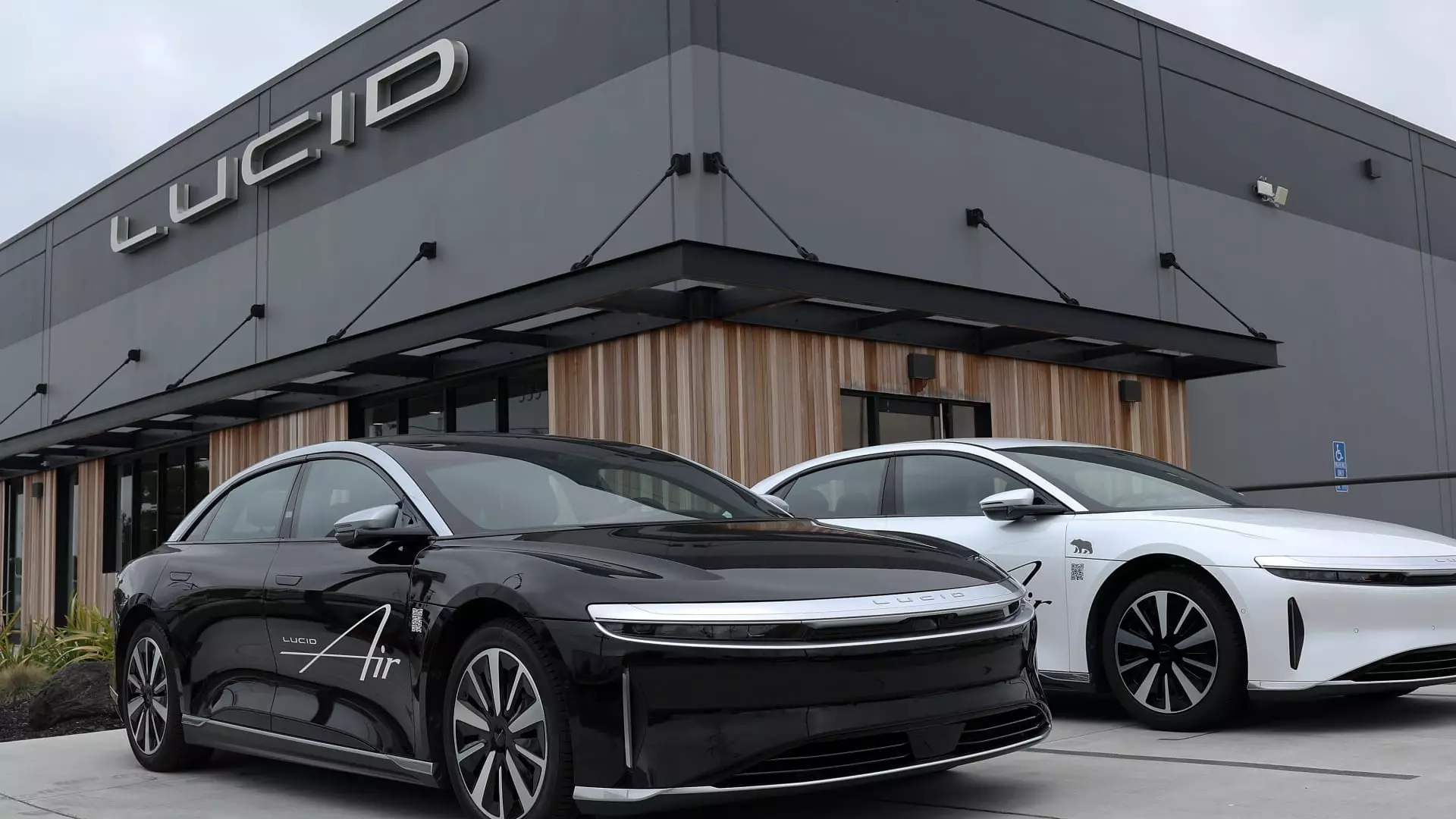The recent resignation of Peter Rawlinson as CEO of Lucid Group has sent ripples through the electric vehicle industry. This unexpected change in leadership comes at a significant juncture for the company, which is poised to dramatically increase its vehicle production this year—from approximately 9,000 units in 2024 to a target of 20,000 units. Marc Winterhoff, the company’s chief operating officer, will step in as interim CEO as the board initiates a search for a new leader. While Rawlinson transitions to a role as a “strategic technical advisor” to the company’s board chairman, his departure raises questions about the future direction of Lucid Group.
Rawlinson’s tenure at Lucid, spanning twelve years, has seen him lead the company through pivotal milestones, including the high-profile public listing via a SPAC in July 2021. His deep commitment to Lucid is evident not only in his leadership but also in his financial stake in the company. He publicly emphasized his dedication, noting that he hadn’t sold shares except for tax-related reasons. Winterhoff attributes Rawlinson’s decision to step down to a personal conviction following years of “daily grind,” suggesting that it was a culmination of strategic thinking rather than a reaction to sudden negative circumstances.
However, this leadership transition raises questions about continuity. Given that Rawlinson has been a significant figure in defining Lucid’s vision and technology, his absence at the helm could create uncertainty. Notably, he was the chief technology officer as well, reinforcing his integral position within the company and its innovation strategy.
The context surrounding Rawlinson’s resignation is further complicated by Lucid’s recent financial performance. The company reported a considerable net loss of $636.9 million for Q4, despite revenues exceeding analyst expectations. A quick comparison with the previous year’s figures reveals that, while losses remain substantial, there has been a slight improvement in revenue generation. Lucid delivered 10,241 vehicles in 2024—a modest increase that hints at potential growth, albeit slower than anticipated.
The announcement of ambitious production targets, juxtaposed with a history of financial distress, presents a challenging narrative for Lucid. Investors are likely to scrutinize how new leadership under Winterhoff and the eventual incoming CEO will navigate these financial realities while pushing towards increased production goals.
With Winterhoff now overseeing operations, the immediate focus is on ramping up production, including that of the new SUV, the Gravity. While details regarding the SUV’s expected contribution to total production numbers remain vague, Winterhoff’s cautious optimism suggests a strategic approach to managing manufacturing capabilities. The ambitious target of 20,000 vehicles signals Lucid’s intent to carve out a larger market share, but achieving this milestone will depend on several factors, including supply chain management and consumer demand.
As the electric vehicle market matures, Lucid faces increased competition, not only from well-established automakers but also from other emergent electric brands. The ongoing uncertainty regarding federal support for EV purchases under the current political climate further complicates Lucid’s position. Analysts and investors will be closely observing how the company aligns its production targets with realistic consumer adoption rates.
In the short term, Lucid Group’s stock has shown volatility, evidenced by an 8% uptick in after-hours trading following the announcement of Rawlinson’s departure. However, the company has struggled with a nearly 13% decline year-to-date, compounded by a 28% drop in the previous year. Such fluctuations highlight broader market dynamics, including the slower-than-expected adoption of electric vehicles and the often shifting landscape of investment in clean energy technology.
The complete impact of Rawlinson’s departure and Winterhoff’s interim leadership on investor confidence remains to be seen. However, Lucid’s heavy reliance on the Saudi Arabian Public Investment Fund signifies strong backing, which could offer some stability in turbulent waters.
The leadership change at Lucid Group comes at a critical time, laden with both potential opportunities and significant challenges. As the company seeks to scale production and capture a larger share of the burgeoning EV market, the focus will be on how effectively the management transition is navigated. Investors, consumers, and stakeholders will be eagerly watching the company’s next moves, hoping to see Lucid transform challenges into stepping stones toward sustainable growth in the competitive electric vehicle sector.


Leave a Reply